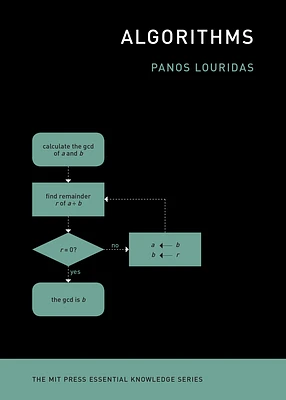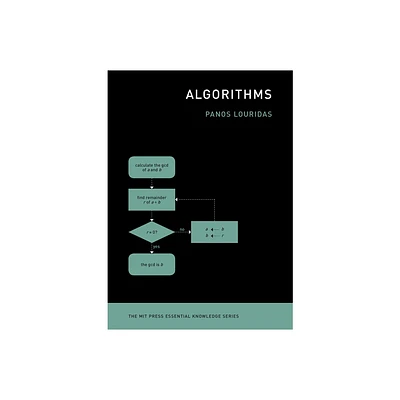Home
Algorithms and Subjectivity: The Subversion of Critical Knowledge
Loading Inventory...
Barnes and Noble
Algorithms and Subjectivity: The Subversion of Critical Knowledge
Current price: $66.99


Barnes and Noble
Algorithms and Subjectivity: The Subversion of Critical Knowledge
Current price: $66.99
Loading Inventory...
Size: Hardcover
*Product Information may vary - to confirm product availability, pricing, and additional information please contact Barnes and Noble
In this thought-provoking volume, Eran Fisher interrogates the relationship between algorithms as epistemic devices and modern notions of subjectivity.
Over the past few decades, as the instrumentalization of algorithms has created knowledge that informs our decisions, preferences, tastes, and actions, and the very sense of who we are, they have also undercut, and arguably undermined, the Enlightenment-era ideal of the subject. Fisher finds that as algorithms enable a reality in which knowledge is created by circumventing the participation of the self, they also challenge contemporary notions of subjectivity.
Through four case-studies, this book provides an empirical and theoretical investigation of this transformation, analyzing how algorithmic knowledge differs from the ideas of critical knowledge which emerged during modernity – Fisher argues that algorithms create a new type of knowledge, which in turn changes our fundamental sense of self and our concept of subjectivity.
This book will make a timely contribution to the social study of algorithms and will prove especially valuable for scholars working at the intersections of media and communication studies, internet studies, information studies, the sociology of technology, the philosophy of technology, and science and technology studies.
Over the past few decades, as the instrumentalization of algorithms has created knowledge that informs our decisions, preferences, tastes, and actions, and the very sense of who we are, they have also undercut, and arguably undermined, the Enlightenment-era ideal of the subject. Fisher finds that as algorithms enable a reality in which knowledge is created by circumventing the participation of the self, they also challenge contemporary notions of subjectivity.
Through four case-studies, this book provides an empirical and theoretical investigation of this transformation, analyzing how algorithmic knowledge differs from the ideas of critical knowledge which emerged during modernity – Fisher argues that algorithms create a new type of knowledge, which in turn changes our fundamental sense of self and our concept of subjectivity.
This book will make a timely contribution to the social study of algorithms and will prove especially valuable for scholars working at the intersections of media and communication studies, internet studies, information studies, the sociology of technology, the philosophy of technology, and science and technology studies.


















